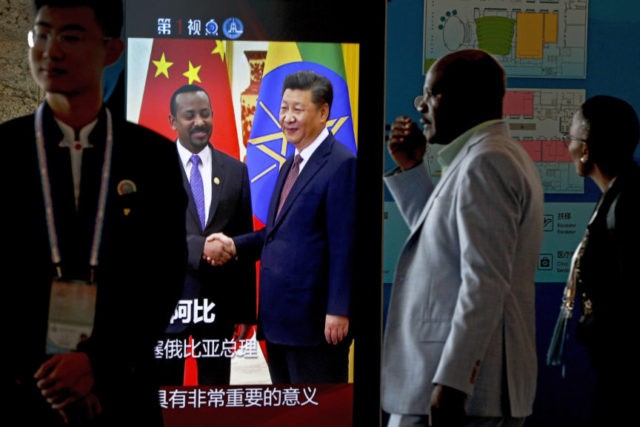U.S. President Donald Trump recently signed a bill into law to revamp America’s investment efforts in Africa to counter what the United States considers to be “predatory” economic practices across the continent at the hands of China, a move that is expected to benefit countries in the region, the Daily Nation from Kenya reported Monday.
Known as the Better Utilization of Investments Leading to Development (BUILD) Act, the legislation is designed to address Beijing’s enhanced economic and political influence in Africa, namely the sub-Saharan region.
The bill, approved by Congress on October 3 and signed into law by the president on October 5, will double to $60 billion, the U.S. taxpayer funds devoted to promoting U.S. corporate investment in Africa.
Following in the steps of China, the BUILD Act will also establish a new U.S. federal agency to take an equity stake of the American government’s development projects on the continent.
“The US government entity that the Build Act replaces had not been permitted to make direct investments of that sort,” the Daily Nation explained. “Its mandate was limited to activities such as underwriting risk insurance for US companies venturing into emerging markets.”
Last week, a U.S. State Department official told reporters that the bill would offer Africa “a better alternative to Chinese state-directed investment.”
Trump administration officials have accused China of employing “predatory lending” in Africa, particularly through Beijing’s ambitious One Belt, One Road (OBOR) investments, also known as the Belt and Road Initiative (BRI).
“Our theory on engagement [in Africa] is that it should be led by our private sector,” Manisha Singh from the State Department told reporters on October 4, referring to the Build Act.
The United States conducts business “very differently” than China, she noted.
“Predatory lending practices” are a hallmark of Beijing’s investment strategy in Africa, added Matthew Harrington, an assistant secretary in the State Department’s Africa Bureau, during the October 4 press briefing.
In March, Voice of America (VOA) warned that “China’s security footprint in Africa has been expanding quietly alongside its deepening economic interests across the continent.”
China has opened its first logistics and military base in the strategically crucial African country Djibouti, already home to military bases from various Western nations, including the United States.
VOA acknowledged that the West had expressed concern about China issuing loans or offering aid with no strings attack to African governments with questionable human rights records, a move that undermines efforts by Western countries to use economic assistance to promote democracy and human rights.

COMMENTS
Please let us know if you're having issues with commenting.